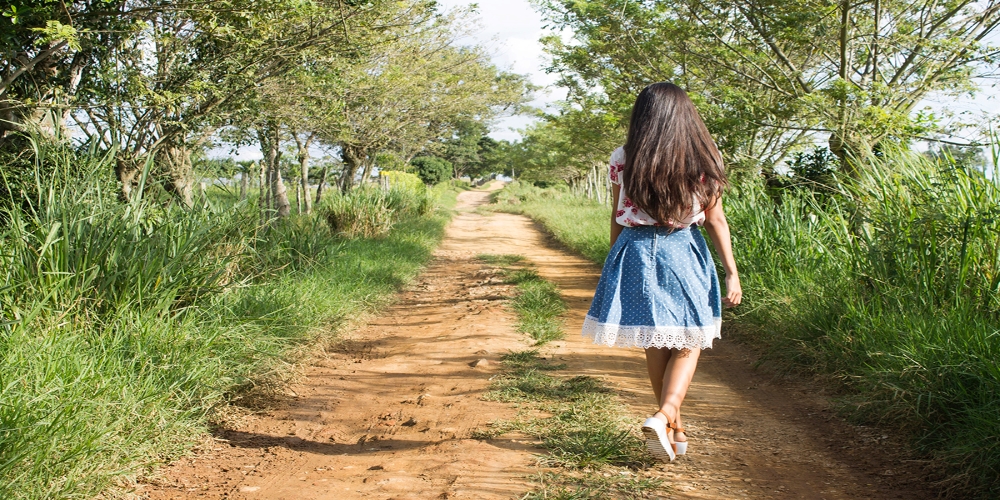
The report completed by PoliRural partners summarizes the results of the mission-oriented approach implementation in the pilot regions. It provides an insight on context and needs of pilot regions by outlining the issues of concern and context that create the basis for the regional visions and the purpose of the regional foresight process. The document provides information of policy challenges, intervention measures and KPIs that form the core of the Regional Action Plans.
Policy challenges and measures are analyzed and clustered by the four main strands of the Long-Term Vision for Rural Areas:
– stronger rural areas,
– connected rural areas,
– resilient rural areas that foster well-being,
– prosperous rural areas.
Some of the conclusions are the following:
- The majority of challenges identified by pilot regions are primarily related to the PROSPERITY of rural areas, particularly to the various reasons currently hindering the diversification of economic activities;
- The absence or low quality of digital infrastructure, limited skills and abilities to use advantages of good broadband, and poorly digitalized traditional sectors of the economy are central issues hindering pilot regions from becoming better CONNECTED rural areas;
- Pilot regions have identified just a few RESILIENCE-oriented challenges related to the ability to adapt to climate change, reducing the carbon footprint and nature protection;
- The pilot regions see improved governance of their regions as one of the most important results of the foresight process;
- The main precondition for digitalization and modernization of agriculture, industry and services is the availability and coverage of high-quality broadband and digital infrastructure in rural areas;
- The role of digital connectivity and the transition of the traditional economy is seen as an essential element that may contribute to the diversification of traditional sectors of the rural economy concerning the digitization of the agricultural industry and digital capacity building in the rural areas.
You can find more info about the D6.2 Regional Action Plans on the following links:
https://bit.ly/3ubnGGG
https://bit.ly/3OybeZy

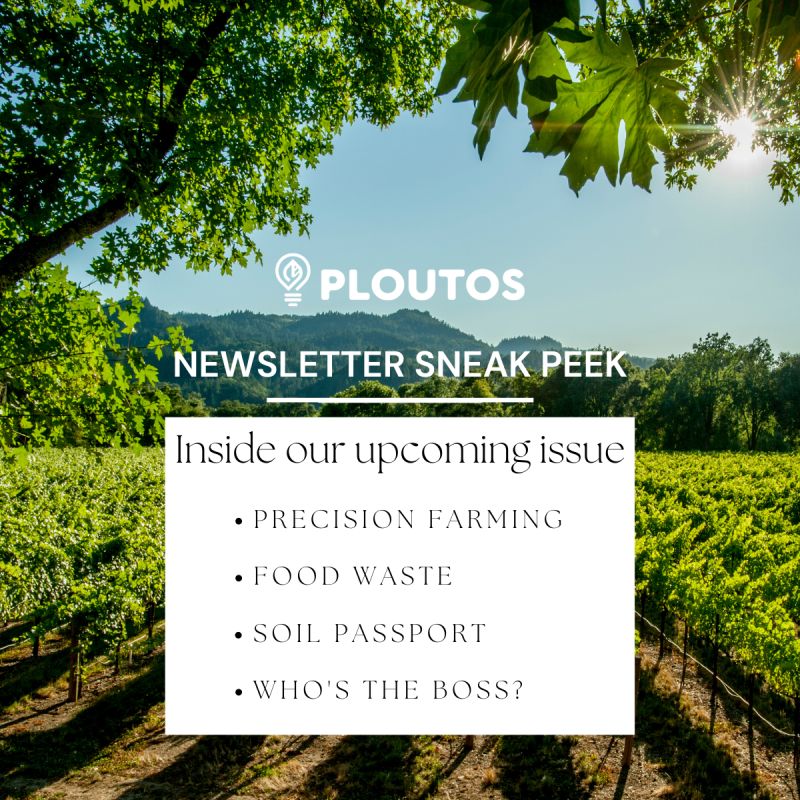
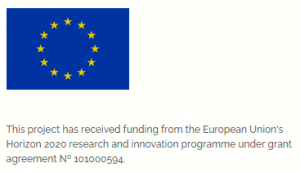

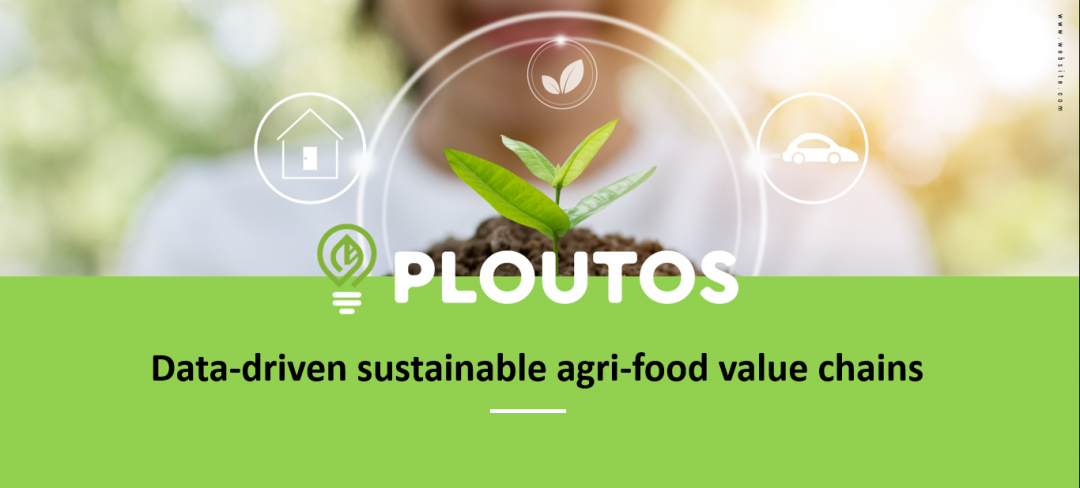


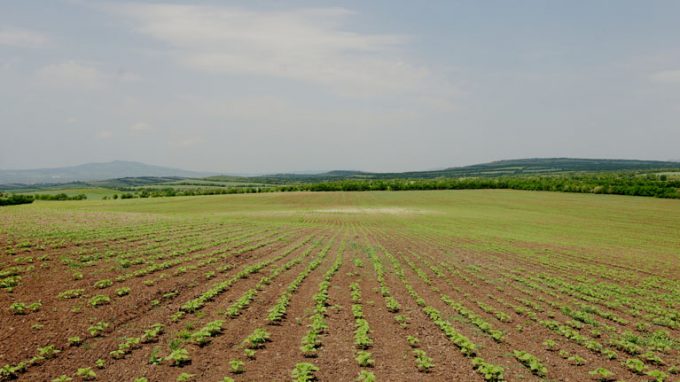

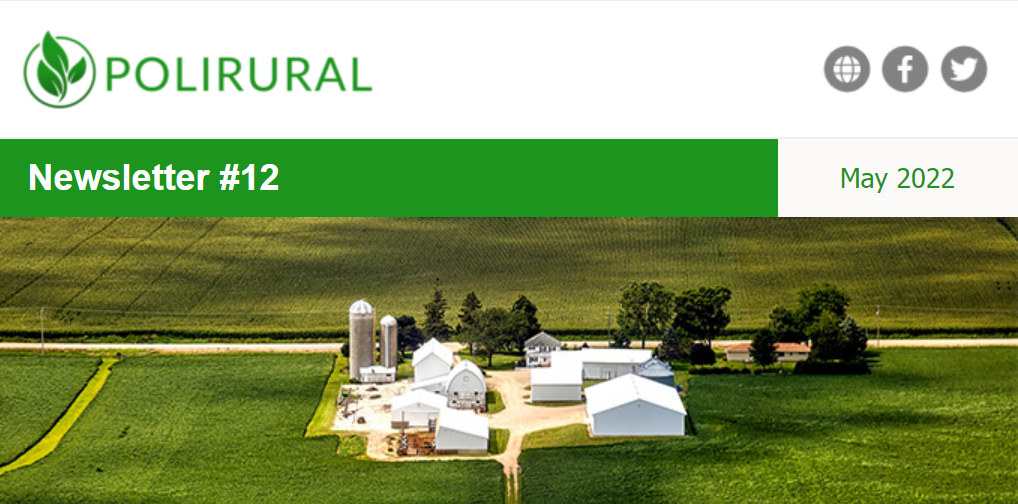
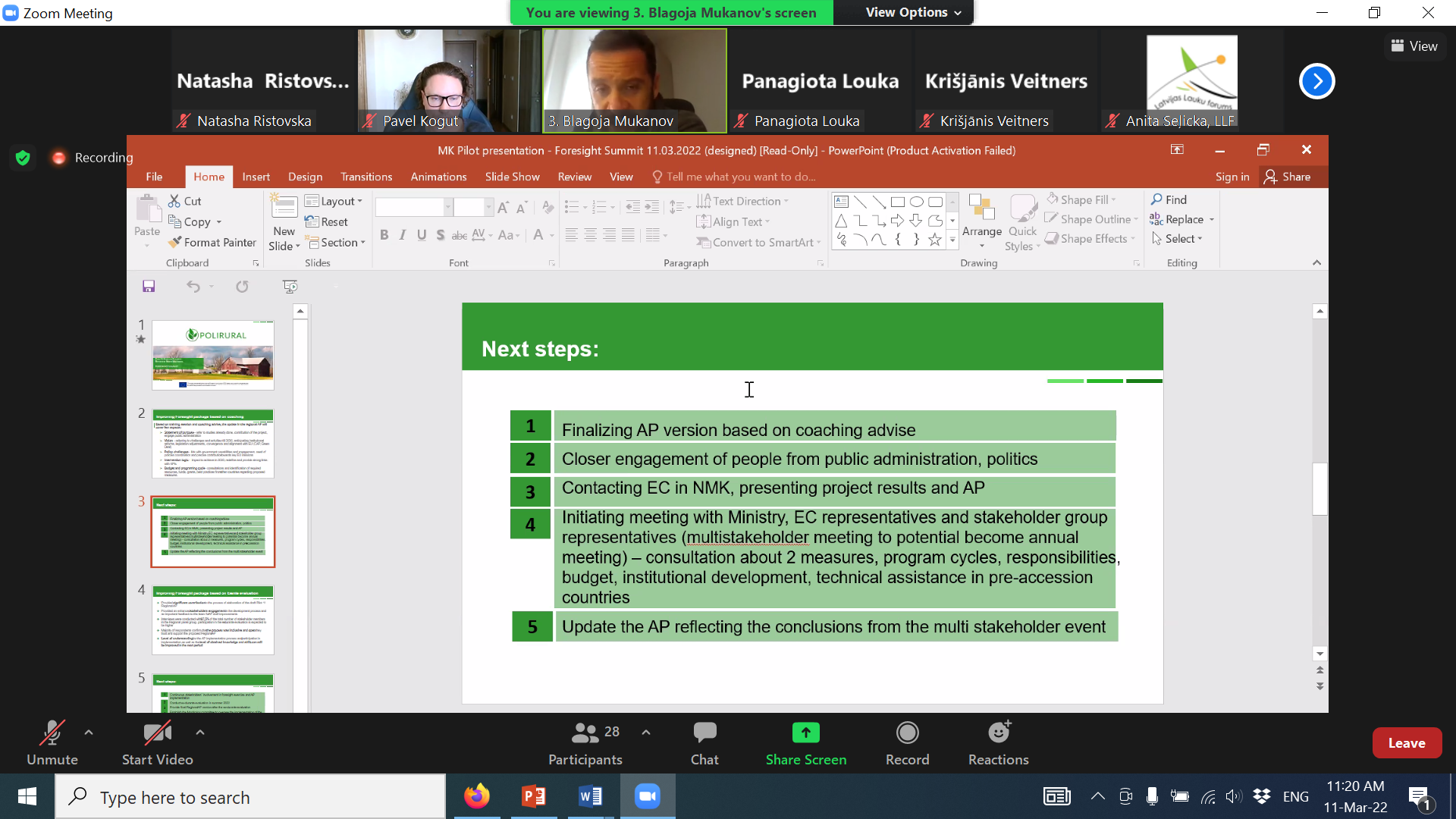 Polirural Foresight Summit was held on the 11th of March 2022. Pilot leaders presented the further improvements of regional action plans. Project partners used the opportunity also to discuss about the Long-Term Vision for Rural Areas and the SDM tool application.
Polirural Foresight Summit was held on the 11th of March 2022. Pilot leaders presented the further improvements of regional action plans. Project partners used the opportunity also to discuss about the Long-Term Vision for Rural Areas and the SDM tool application.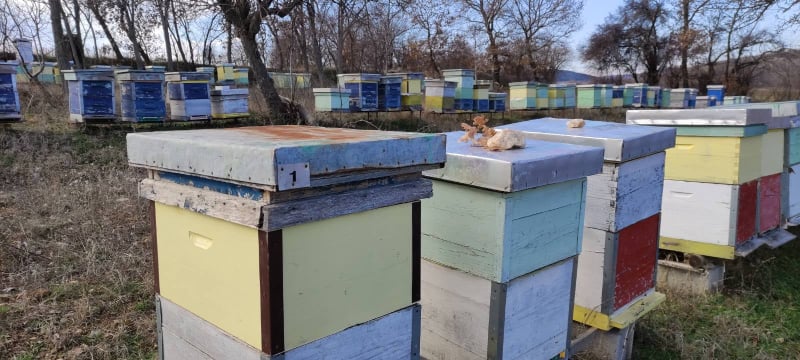 Polirural Atlas of the best practices is presenting another story about the new entrant case study of Dragan Mishevski from Pilot11 in North Macedonia.
Polirural Atlas of the best practices is presenting another story about the new entrant case study of Dragan Mishevski from Pilot11 in North Macedonia.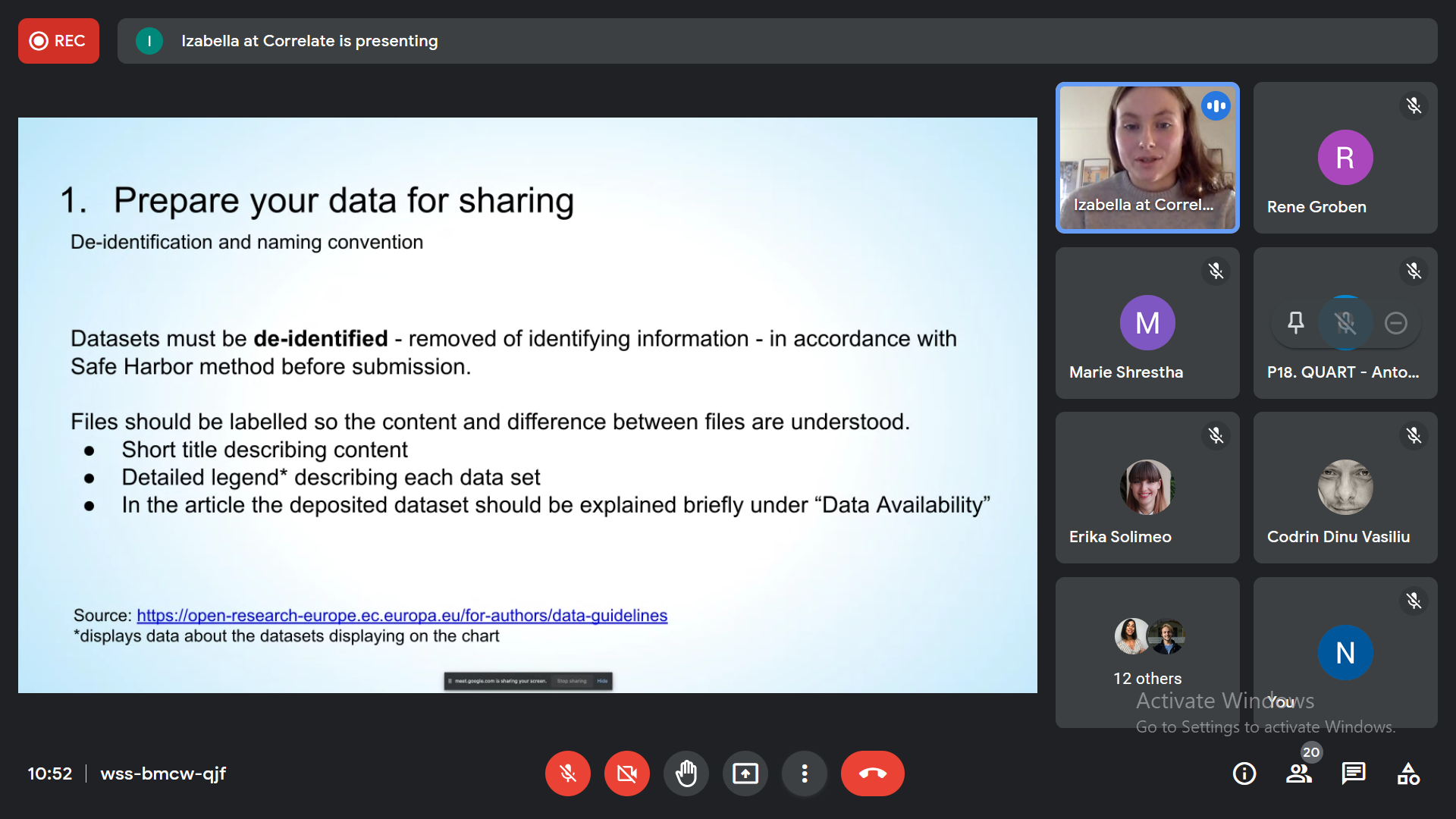 Cities2030 partners join for Data management training.
Cities2030 partners join for Data management training.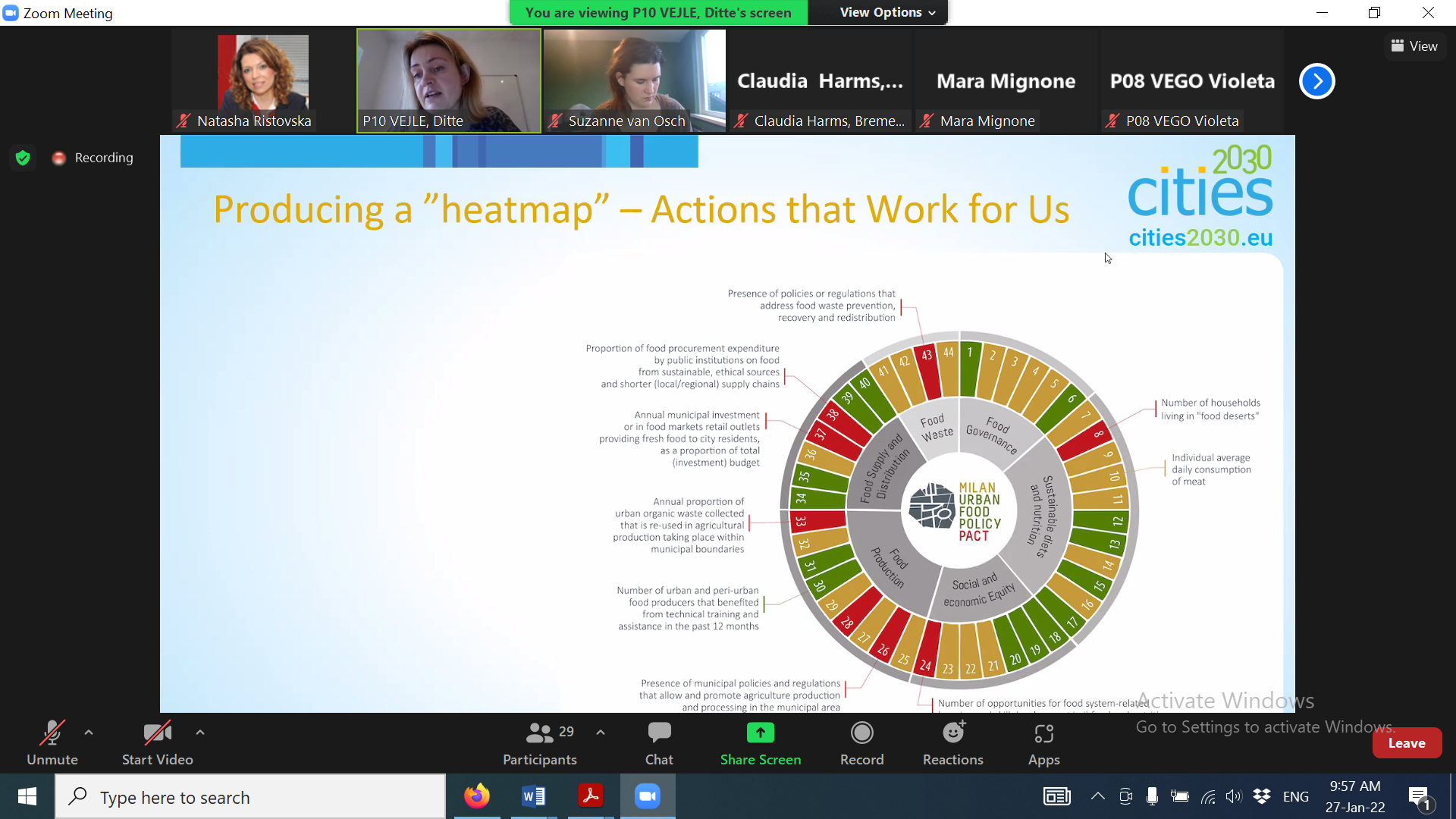 4th Labs2Labs CRFS Policy Seminar was organized within the Cities2030 project. WP4 leaders and partners discussed the implementation of MUFPP in the specific local policy processes.
4th Labs2Labs CRFS Policy Seminar was organized within the Cities2030 project. WP4 leaders and partners discussed the implementation of MUFPP in the specific local policy processes.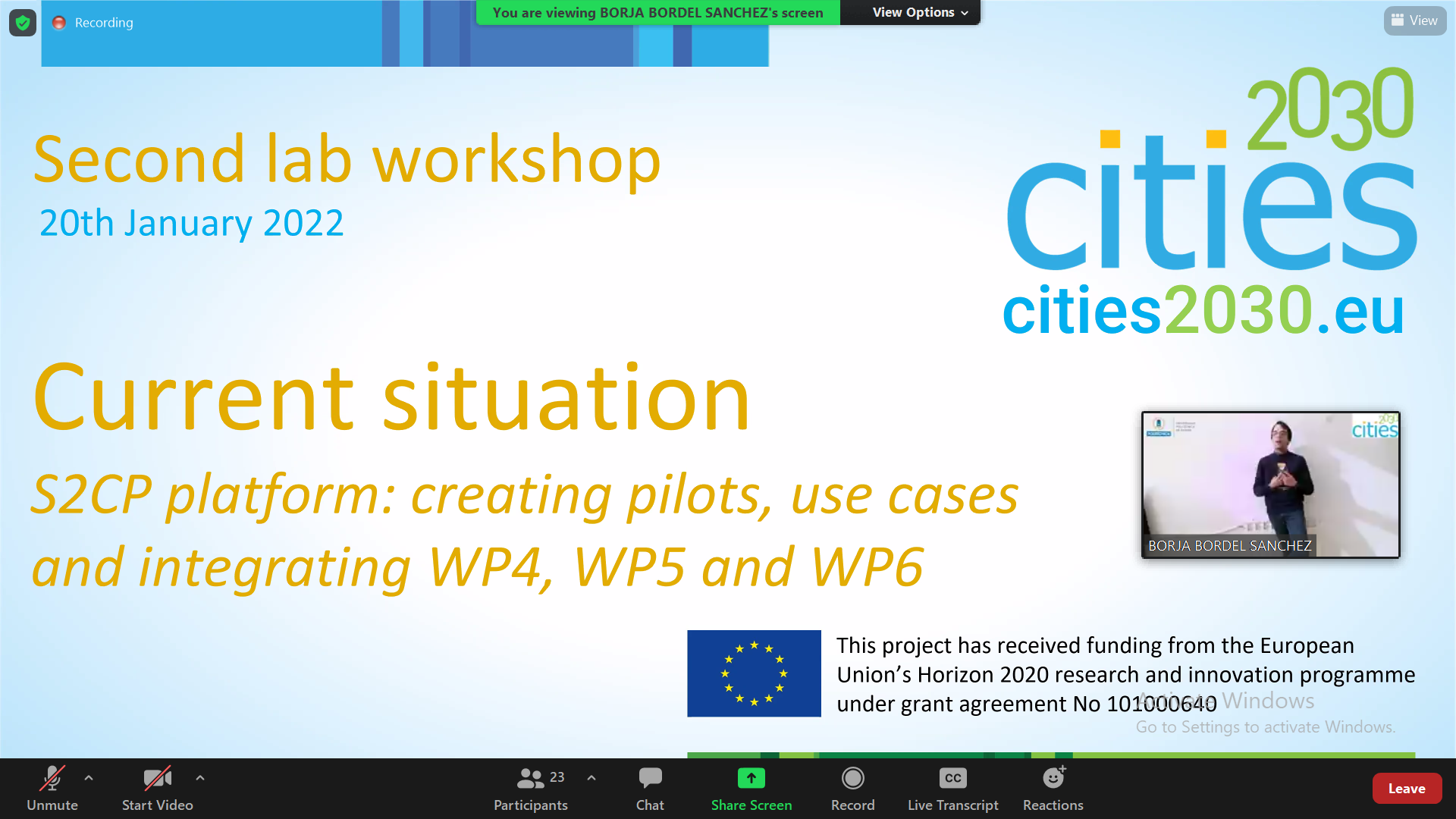 Cities2030 Project partners joined for the second “WP6 and labs workshop”.
Cities2030 Project partners joined for the second “WP6 and labs workshop”.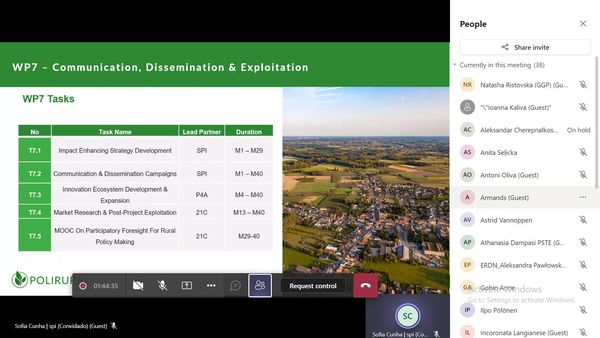 GGP participated in the 7th PoliRural H2020 Project meeting that was held online on the 13th of January 2022.
GGP participated in the 7th PoliRural H2020 Project meeting that was held online on the 13th of January 2022.